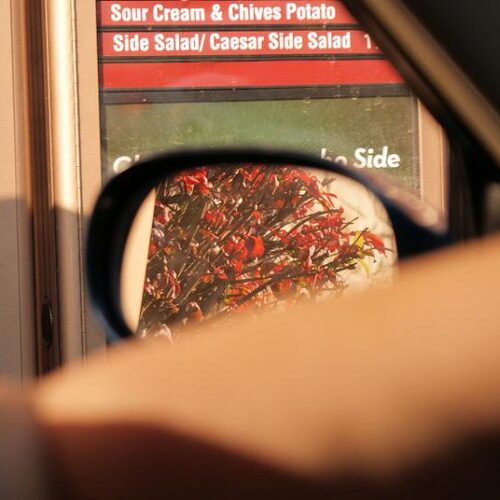In today’s fast-paced world, processed foods have become a staple in many diets due to their convenience, affordability, and long shelf life. However, not all processed foods are created equal. While some, like frozen vegetables or canned beans, can be part of a healthy diet, others are laden with artificial additives, excessive sugars, unhealthy fats, and sodium, which can contribute to a host of health issues, including obesity, heart disease, diabetes, and inflammation. This article explores the top five most processed foods you should avoid, delving into their ingredients, health risks, and healthier alternatives to help you make informed dietary choices.
1. Sugary Breakfast Cereals
What Makes Them Processed?
Sugary breakfast cereals are a prime example of highly processed foods. These colorful, sweetened cereals are often marketed as a quick and “healthy” way to start the day, especially for children. However, they undergo extensive processing, including milling, extruding, and fortifying, to create their signature shapes, textures, and flavors. Most sugary cereals are packed with refined sugars, artificial flavorings, and synthetic colors, while their nutritional value is often limited to added vitamins and minerals, which don’t compensate for their drawbacks.
Health Risks
The high sugar content in these cereals can cause rapid spikes in blood sugar and insulin levels, leading to energy crashes and increased hunger shortly after consumption. Over time, regular consumption of sugary cereals is linked to an increased risk of type 2 diabetes, obesity, and dental issues, particularly in children. Many brands also contain artificial dyes like Red 40 or Yellow 5, which have been associated with hyperactivity in some children and potential carcinogenic risks, though more research is needed. Additionally, these cereals often lack fiber and protein, which are essential for satiety and sustained energy.
Healthier Alternatives
Opt for whole-grain, low-sugar cereals with at least 3 grams of fiber and less than 6 grams of sugar per serving. Better yet, try making your own breakfast with whole foods like oatmeal topped with fresh fruit, nuts, and a drizzle of honey. Overnight oats are a convenient, nutrient-dense option that can be prepped in advance. Greek yogurt with berries and a sprinkle of granola also provides a balanced, satisfying breakfast without the processed additives.
2. Processed Meats
What Makes Them Processed?
Processed meats, such as hot dogs, sausages, bacon, deli meats, and canned meats, undergo curing, smoking, salting, or chemical preservation to enhance flavor and extend shelf life. These products often contain additives like sodium nitrate, sodium nitrite, and monosodium glutamate (MSG), along with high levels of sodium and saturated fats. The meat used is typically sourced from lower-quality cuts, blended with fillers, and heavily processed to achieve a uniform texture.
Health Risks
The World Health Organization (WHO) classifies processed meats as Group 1 carcinogens, meaning there is strong evidence linking them to colorectal cancer. The nitrates and nitrites used as preservatives can form nitrosamines in the body, compounds associated with cancer risk. High sodium content in processed meats also contributes to hypertension and cardiovascular disease. Regular consumption is linked to a higher risk of heart disease, stroke, and premature death. Additionally, processed meats often contain unhealthy fats that can raise LDL (bad) cholesterol levels.
Healthier Alternatives
Choose fresh, unprocessed meats like chicken breast, turkey, or lean cuts of beef or pork, which you can season and cook at home. If you need a convenient option, look for minimally processed meats labeled “no nitrates or nitrites added” (except those naturally occurring, like in celery powder) and with low sodium content. Plant-based alternatives, such as tofu, tempeh, or legume-based patties, can also be nutritious substitutes, provided they are minimally processed and free from excessive additives.
3. Soda and Sugary Drinks
What Makes Them Processed?
Soda, energy drinks, sports drinks, and sweetened iced teas are among the most processed beverages available. These drinks are typically made with carbonated water or flavored bases, high-fructose corn syrup (HFCS) or artificial sweeteners, artificial flavors, and preservatives. Many also contain caffeine, synthetic colors, and phosphoric acid, which gives them their tangy taste and extended shelf life. These beverages undergo extensive processing to achieve their taste, fizziness, and stability.
Health Risks
Sugary drinks are a leading contributor to the global obesity epidemic, as they provide empty calories with no nutritional value. A single 12-ounce can of soda can contain 30–40 grams of sugar, equivalent to 7–10 teaspoons, far exceeding the American Heart Association’s recommended daily limit of 6 teaspoons for women and 9 for men. Regular consumption is associated with weight gain, type 2 diabetes, fatty liver disease, and increased cardiovascular risk. The phosphoric acid in sodas can also weaken bones by interfering with calcium absorption. Artificially sweetened diet or zero-sugar drinks, while lower in calories, may disrupt gut microbiota and increase cravings for sweet foods, potentially leading to overeating.
Healthier Alternatives
Water is the best hydration choice, but if you crave flavor, try infusing water with fresh fruit, herbs, or cucumber slices. Unsweetened herbal teas or sparkling water with a splash of 100% fruit juice can also satisfy your desire for a fizzy drink. For a nutrient boost, consider smoothies made with whole fruits, vegetables, and unsweetened plant-based milk, but be mindful of portion sizes to avoid excess sugar from fruit.
4. Packaged Snack Foods (Chips, Crackers, and Cookies)
What Makes Them Processed?
Packaged snack foods, including potato chips, cheese puffs, crackers, and store-bought cookies, are highly processed to achieve their addictive crunch, flavor, and shelf stability. These products are often made from refined grains, hydrogenated oils, artificial flavors, and high levels of sodium or sugar. Many contain trans fats or partially hydrogenated oils, despite bans in some countries, as well as additives like MSG or artificial sweeteners to enhance taste. The refining process strips away nutrients, leaving little more than empty calories.
Health Risks
The combination of refined carbohydrates, unhealthy fats, and sodium in these snacks makes them a perfect storm for weight gain and heart disease. Trans fats, in particular, are linked to increased LDL cholesterol and decreased HDL (good) cholesterol, raising the risk of heart attack and stroke. High sodium levels can elevate blood pressure, while the lack of fiber and nutrients fails to promote satiety, leading to overconsumption. Many snack foods are also designed to be hyper-palatable, triggering overeating by stimulating reward centers in the brain.
Healthier Alternatives
For crunchy snacks, try air-popped popcorn seasoned with herbs or a small amount of olive oil. Roasted chickpeas or nuts (unsalted or lightly salted) provide protein and healthy fats. If you’re craving something sweet, bake homemade cookies using whole-grain flour, natural sweeteners like maple syrup, and ingredients like dark chocolate or dried fruit. Veggie sticks with hummus or guacamole are also nutrient-rich options that satisfy the need for a savory snack.
5. Instant Noodles and Packaged Meals
What Makes Them Processed?
Instant noodles, microwave dinners, and other packaged meals are designed for convenience, but they come at a nutritional cost. These products are heavily processed to ensure a long shelf life and quick preparation. Instant noodles, for example, are typically made from refined flour, deep-fried in palm oil, and paired with seasoning packets high in sodium, MSG, and artificial flavors. Packaged meals like frozen pizzas or TV dinners often contain refined grains, processed cheeses, and additives like sodium benzoate or artificial colors.
Health Risks
The high sodium content in instant noodles and packaged meals can exceed 50–70% of the recommended daily limit in a single serving, contributing to hypertension and kidney strain. The refined carbohydrates and unhealthy fats used in these products can lead to weight gain and insulin resistance over time. MSG, while generally recognized as safe in moderation, may cause adverse reactions like headaches or nausea in sensitive individuals. Additionally, these meals often lack vegetables, fiber, and essential nutrients, making them a poor choice for regular consumption.
Healthier Alternatives
Prepare quick meals at home using whole ingredients, such as stir-fried vegetables with brown rice or quinoa, which can be made in under 20 minutes. For convenience, batch-cook meals like soups, stews, or grain bowls and freeze them in portions. If you must use packaged options, choose low-sodium versions of canned soups or frozen meals with whole grains and vegetables, and supplement them with fresh produce to boost nutrition.
Why Avoiding Processed Foods Matters
The common thread among these processed foods is their reliance on refined ingredients, artificial additives, and excessive amounts of sugar, sodium, or unhealthy fats. These characteristics not only diminish their nutritional value but also contribute to long-term health issues. Diets high in processed foods are linked to chronic conditions like obesity, heart disease, diabetes, and certain cancers, as well as poorer mental health outcomes due to nutrient deficiencies and inflammation.
Transitioning to a diet rich in whole, minimally processed foods can significantly improve your health. Whole foods, such as fruits, vegetables, whole grains, lean proteins, and healthy fats, provide essential nutrients that support energy, immunity, and overall well-being. While convenience is important, small changes—like swapping sugary cereals for oatmeal or soda for infused water—can make a big difference over time.
Practical Tips for Reducing Processed Food Consumption
- Read Labels Carefully: Check ingredient lists for added sugars, artificial additives, and sodium content. Choose products with short, recognizable ingredient lists.
- Cook at Home: Preparing meals from scratch gives you control over ingredients. Start with simple recipes that require minimal time and equipment.
- Plan Ahead: Meal prepping can save time and reduce reliance on processed foods. Keep healthy snacks like fruit, nuts, or chopped veggies on hand.
- Shop the Perimeter: Grocery stores often place whole foods like produce, meat, and dairy around the perimeter, while processed foods dominate the center aisles.
- Moderation, Not Deprivation: It’s okay to enjoy processed foods occasionally, but aim to make whole foods the foundation of your diet.
Conclusion
Avoiding highly processed foods like sugary cereals, processed meats, soda, packaged snacks, and instant noodles can significantly improve your health and reduce the risk of chronic diseases. By understanding the risks associated with these foods and choosing nutrient-dense alternatives, you can take control of your diet and well-being. Start by making small, sustainable changes, such as replacing one processed food with a whole-food alternative each week. Over time, these choices will add up, leading to a healthier, more vibrant life.


















